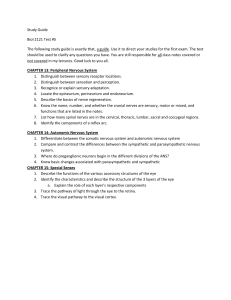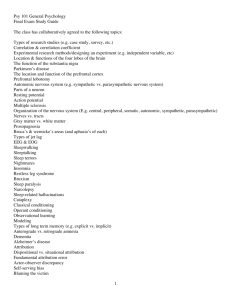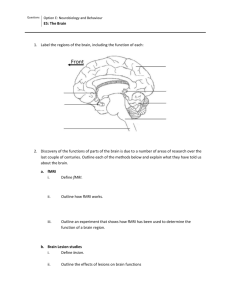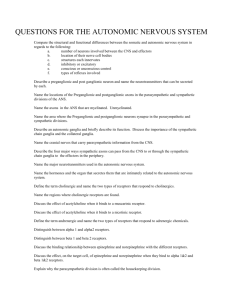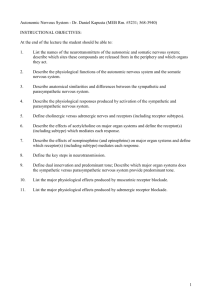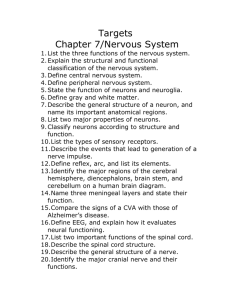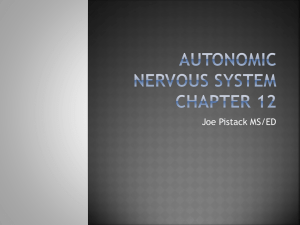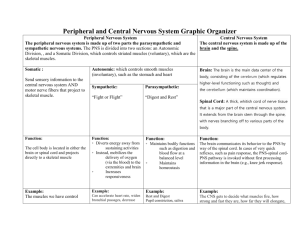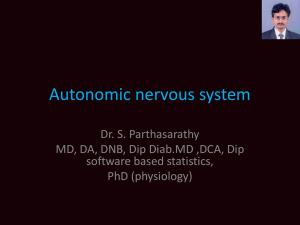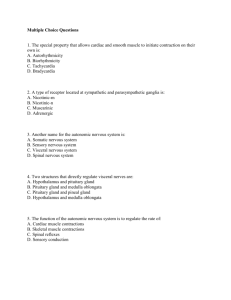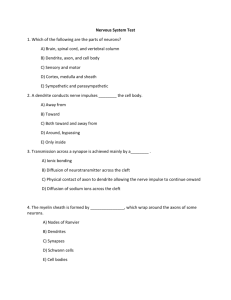Worksheet for lecture 27 • The autonomic nervous system is said to
advertisement
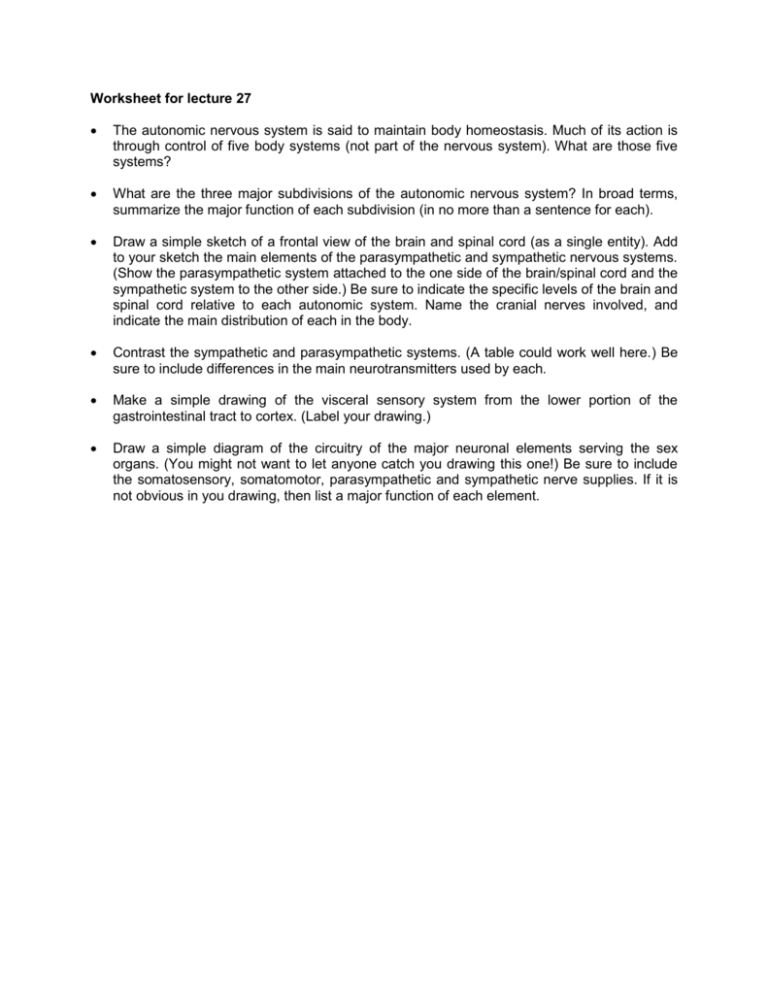
Worksheet for lecture 27 The autonomic nervous system is said to maintain body homeostasis. Much of its action is through control of five body systems (not part of the nervous system). What are those five systems? What are the three major subdivisions of the autonomic nervous system? In broad terms, summarize the major function of each subdivision (in no more than a sentence for each). Draw a simple sketch of a frontal view of the brain and spinal cord (as a single entity). Add to your sketch the main elements of the parasympathetic and sympathetic nervous systems. (Show the parasympathetic system attached to the one side of the brain/spinal cord and the sympathetic system to the other side.) Be sure to indicate the specific levels of the brain and spinal cord relative to each autonomic system. Name the cranial nerves involved, and indicate the main distribution of each in the body. Contrast the sympathetic and parasympathetic systems. (A table could work well here.) Be sure to include differences in the main neurotransmitters used by each. Make a simple drawing of the visceral sensory system from the lower portion of the gastrointestinal tract to cortex. (Label your drawing.) Draw a simple diagram of the circuitry of the major neuronal elements serving the sex organs. (You might not want to let anyone catch you drawing this one!) Be sure to include the somatosensory, somatomotor, parasympathetic and sympathetic nerve supplies. If it is not obvious in you drawing, then list a major function of each element.

